Blonde Venus (1932)
“I’m no good, you understand? No good at all.”
|
Synopsis: |
|
Genres, Themes, Actors, and Directors:
Response to Peary’s Review: Dietrich’s unusual character — a “strong, selfless woman who is willing to sacrifice herself for others’ happiness (even if it means giving her body) and to face the consequences for her sins” — “sees no need to apologize or defend herself to Marshall for what she did on his behalf,” yet also doesn’t “expect him to understand or forgive her”. She’s a highly complex woman, and yet a bit of a feminist cipher: we’re not sure why she falls in love with Marshall and comes with him to America, nor why she so easily commits infidelity while her husband may be on his deathbed. Ultimately, the storyline itself — including a “descent into hell” as Dietrich “winds up sleeping in some bizarre dives, including one place in which hens and chickens run free”: — simply emerges as pure melodrama peppered by two highly memorable nightclub performances, one in which Dietrich dons a blonde frizzy wig as “Blonde Venus” while emerging out of a gorilla suit: and a later scene in which she famously wears a white top hat and tails while ogling chorus girls. It’s no wonder this film is a favorite with gay and camp-loving audiences! Redeeming Qualities and Moments: Must See? Categories
Links: |
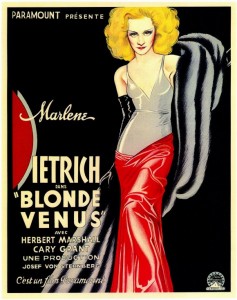
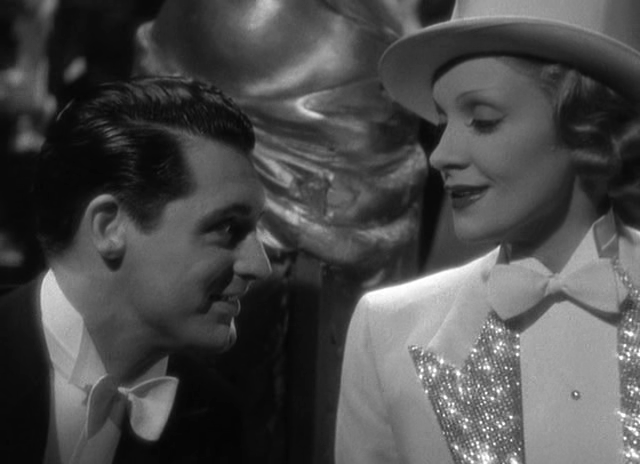
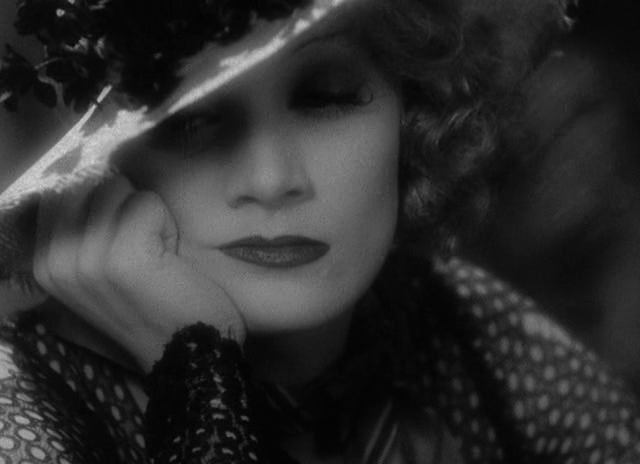
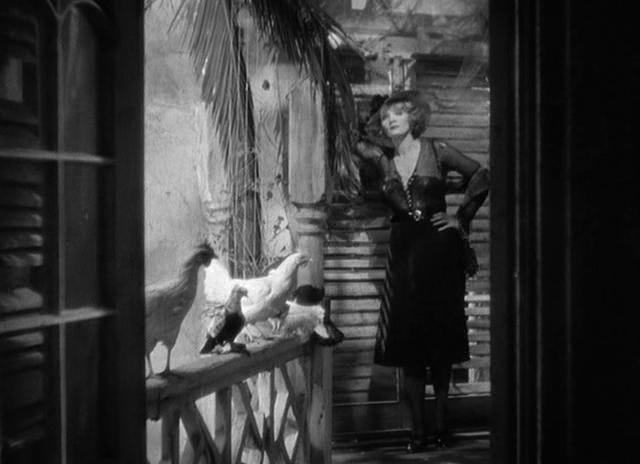
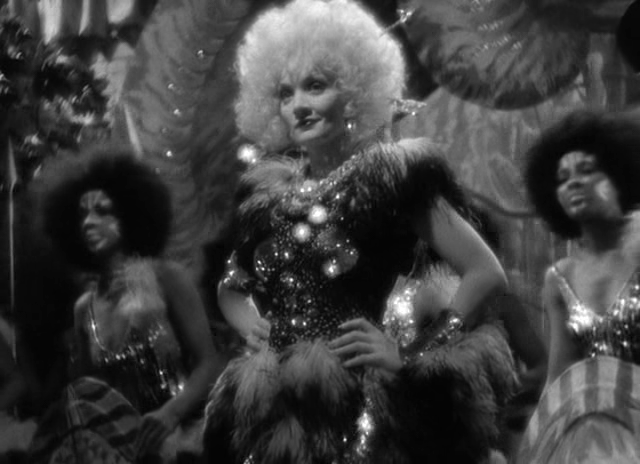
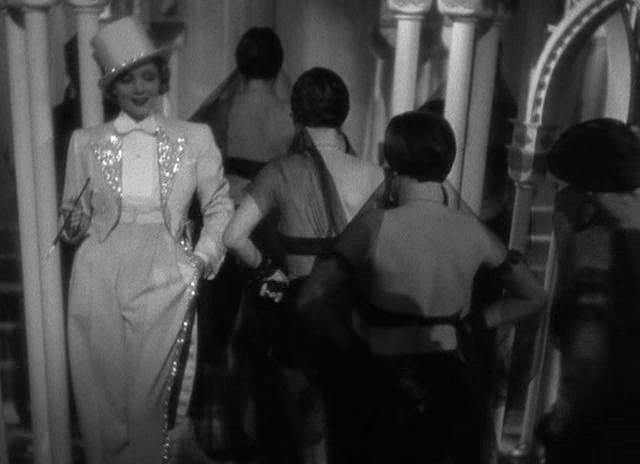
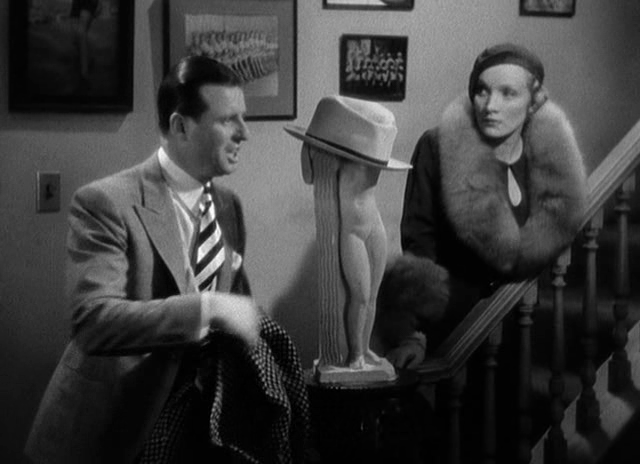

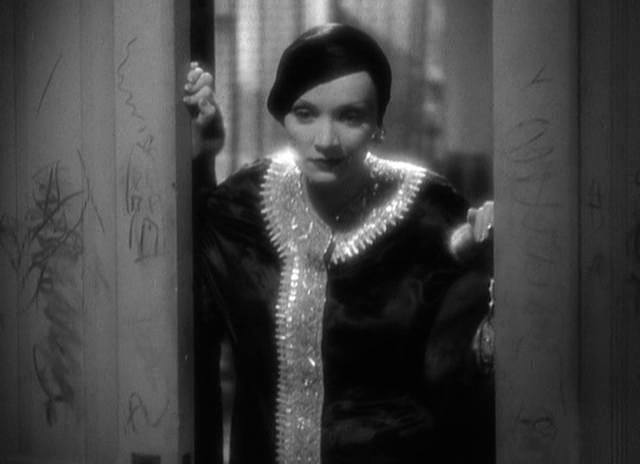
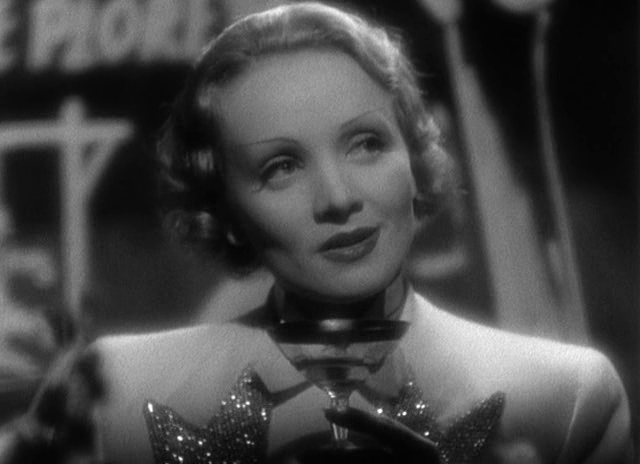

One thought on “Blonde Venus (1932)”
Must-see, as an all-around ‘good show’, satisfying in every aspect.
I saw this again recently – and seem to love it each time I see it. In this case, I’m rather in complete agreement with Peary’s assessment of the film, esp. Dietrich’s performance. Personally, I don’t have any problem with understanding her character or what motivates her. She falls in love with Marshall – seemingly because he is so smitten with her and initially she enjoys that. But she soon grows to love him in return. (In fact, the story of their courtship is one that their child always wants to be told as a bedtime story, and Dietrich’s character never really seems to tire of repeating it. She seems to enjoy telling it when asked.)
It’s also not hard to see why she eventually does what she does when her husband is diagnosed: she loves him, she needs money, she’ll do what she has to do to try to make him well.
There is, of course, an element in the film that appeals to gay audiences – and that element does come out in the musical numbers. While I find those enjoyable, I don’t overall see the film as camp – it’s pretty much a straightforward tale of romance, with peripheral complication that is also a kind of romance.
Simply put, I find this to be a well-told tale – and with a lot of style. The characters all seem genuine to me and well-thought-out. I esp. like when Grant realizes, in his hunt to win Dietrich, that she really does love her husband…and that, even though he may have loved her a bit more than his usual paramour, he’s essentially a playboy and it makes more sense to gallantly let her go amicably.